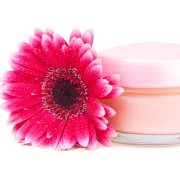 Photo: Getty Images
Photo: Getty Images
There is no reason why any woman should endure the unpleasant effects of vaginal dryness and irritation to the external female genitalia. Vaginal dryness in perimenopausal women can have many causes, including medications such as antidepressants, excessive caffeine, decongestants, oral contraceptives, stress, lack of foreplay, and specific hormonal deficiencies, such as estradiol and testosterone.
First, to rule out other possible causes of irritation or pain, such as an infection or a lesion, it’s important that your doctor diagnose the problem as “vaginal atrophy,” “atrophic changes,” or estrogen deficiency. Once a diagnosis of atrophy or thinning of the tissues is made, it is fairly easy to remedy the problem.
Treating vaginal/vulvar atrophy will also help with bladder control, lubrication, and prevention of vaginal infections (such as yeast and bacteria overgrowth).
By improving tissue health and increasing the area’s elasticity, moistness, and padding, you will again be able to enjoy sex, which will no longer be painful. More natural lubrication also leads to improved sensation.
After your diagnosis of atrophy or thinning of the tissues is made, another cure for this problem is hormone treatments.
The genital area contains multiple estrogen and testosterone receptors that depend on adequate levels of these hormones to keep them healthy, plump, and youthful. Estrogen and testosterone promote adequate blood flow in the pelvic organs and surrounding tissues, they help maintain a healthy pH balance in the vaginal area, and they keep healthy bacteria in check and working to your benefit. If your blood levels of estrogen are normal, your tissues can still benefit from the use of estriol, a weak natural form of estrogen.
Using estriol vaginal cream formulated by a compounding pharmacy is the best treatment for vaginal dryness. It can be applied to the vagina internally with an applicator or used on the external tissues for improved elasticity, especially at the vaginal opening.
Unlike estradiol creams – the traditional hormone therapy – estriol won’t build up the uterine lining. Therefore, you don’t have to combine it with progesterone to protect yourself against uterine cancer.
For women who struggle with vaginal dryness and loss of sexual sensation, or for those who experience extreme dryness and irritation, adding testosterone to the estriol cream helps.
Women who prefer not to use either hormone can rub vitamin E oil daily into external tissues to improve their health. Other vaginal moisturizers, such as Replens, Astro-glide, and K-Y Jelly, are available over-the-counter.
Something as simple as relaxing and going a little slower during sex can further enhance vaginal and vulvar lubrication. Natural lubrication usually takes a little longer at first, so you and your partner should take time to enjoy each other sexually. Start with a relaxing massage!
Nisha Jackson PhD, MS, WHCNP, HHP
www.justasknish.com
Nisha Jackson is one of the nation's leading bioidentical hormone & wellness experts. She is the host of the nationally syndicated radio program "Just Ask Nish", author, columnist, lecturer, and continues to be in high demand in her Southern Oregon-based specialty practices. With no hidden agendas Nish, as she is known by her radio audience, is relentless to uncover health solutions that work. If it's safe, effective and good for you, it's good medicine.





Add a Comment1 Comments
I've been using estriol cream for vaginal atrophy/dryness for over 4 years---it's inexpensive, covered by my insurance, easy to use and it works great. Thanks for this article!
October 16, 2010 - 1:11pmThis Comment